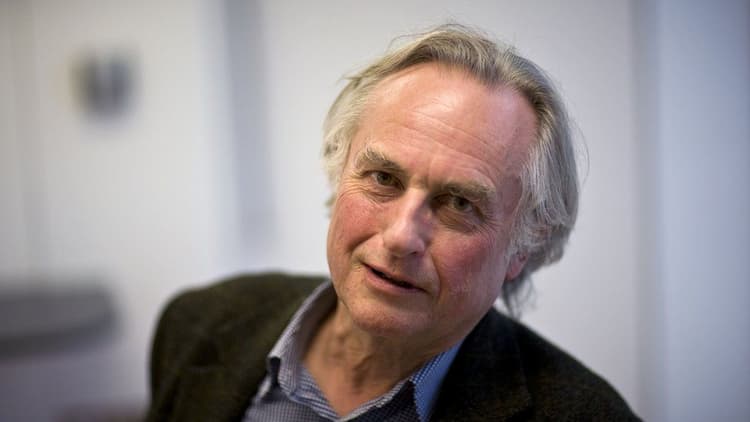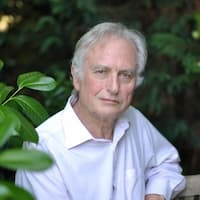Richard Dawkins Biography
Richard Dawkins, FRS FRSL, is a British evolutionary scientist, zoologist, and author. He is an emeritus fellow of New College, Oxford, and served as Professor for Public Understanding of Science at the University of Oxford from 1995 to 2008. His 1976 book The Selfish Gene popularized the gene-centred perspective of evolution and coined the term meme. Dawkins has received numerous academic and literary honors.
How old is Richard Dawkins? – Age
He is 83 years old as of 26 March 2024. He was born in 1941 in Nairobi. His real name is Clinton Richard Dawkins.
Richard Dawkins Family
Dawkins was born as Clinton. Richard Dawkins was born on March 26, 1941, in Nairobi, Kenya’s capital under British colonial authority. He then dropped Clinton from his name via deed poll. He is the son of Jean Mary Vyvyan and Clinton, John Dawkins, an agricultural civil official in the British Colonial Service in Nyasaland (modern-day Malawi), of an Oxfordshire landed aristocratic family. His father was called up to the King’s African Rifles during WWII and returned to England in 1949, when Dawkins was eight years old. His father inherited the country estate Over Norton Park in Oxfordshire, which he commercially farmed. Dawkins lives in Oxford, England. He has a younger sister named Sarah.
Richard Dawkins Education
Dawkins began attending Chafyn Grove School in Wiltshire when he was eight years old, and he was abused by a teacher there. He went to Oundle School in Northamptonshire from 1954 to 1959, where he read Bertrand Russell’s Why I Am Not a Christian for the first time. Dawkins earned a second-class degree in zoology from Balliol College, Oxford, in 1962. He remained as a research student under Nikolaas Tinbergen’s supervision, earning his Doctor of Philosophy degree in 1966 and serving as a research assistant for another year. Tinbergen was a pioneer in the study of animal behavior, focusing on instinct, learning, and choice.
Richard Dawkins Wife – Children
Dawkins has been married three times and has one daughter. Dawkins married ethologist Marian Stamp on August 19, 1967, in the Protestant church in Annestown, County Waterford, Ireland; the couple separated in 1984. On June 1, 1984, he married Eve Barham (1951–1999) in Oxford. They have a daughter. Dawkins and Barham divorced. In 1992, he married actress Lalla Ward in Kensington and Chelsea, London. Dawkins met her through their mutual acquaintance Douglas Adams, who had previously worked with her on BBC’s Doctor Who. Dawkins and Ward separated in 2016, and they later described it as “entirely amicable.”
Richard Dawkins Net Worth
He has an estimated net worth of $10 million.
Richard Dawkins Religion
He identifies as an agnostic, a “cultural Anglican” affiliated with the Church of England, and a “secular Christian”. On February 6, 2016, Dawkins experienced a small haemorrhagic stroke at home. Later that year, Dawkins said that he was almost entirely recovered.
Richard Dawkins The Selfish Gene
Dawkins’ 1976 book The Selfish Gene explores the gene-centered theory of evolution, which was made popular by W.D. Hamilton and other figures. According to the book, it makes more sense for two people to act collaboratively toward one another the more genetically linked they are. In order to demonstrate that such “selfish” replication may likewise mimic human culture, the book introduces the term “meme,” which refers to a unit of human cultural evolution similar to the gene.

Since its release, the book has been the focus of numerous investigations, which has increased awareness of Hamilton’s theories and sparked investigation into human inclusive fitness. Dawkins chastised the book’s title in its 30th anniversary edition, claiming it would convey a misleading image of its contents. The Selfish Gene was voted the most influential science book of all time in a survey conducted in July 2017 to commemorate the 30th anniversary of the Royal Society science book prize.
Richard Dawkins Professor
He became involved in anti-war demonstrations and activities during this time. Dawkins returned to the University of Oxford in 1970 and became a reader in zoology in 1990. In 1995, he was appointed Simonyi Professor for the Public Understanding of Science at Oxford, a position he held until 2008. Since 1970, he has been a fellow of New College, Oxford, and is now an emeritus fellow. He has delivered numerous lectures, including the Henry Sidgwick Memorial Lecture (1989), the first Erasmus Darwin Memorial Lecture (1990), the Michael Faraday Lecture (1991), the T. H. Huxley Memorial Lecture (1992), the Irvine Memorial Lecture (1997), the Tinbergen Lecture (2004), and the Tanner Lectures (2003).
Dawkins has edited several journals and acted as an editorial advisor to the Encarta Encyclopedia and the Encyclopedia of Evolution. He has been a senior editor and columnist of the Council for Secular Humanism’s Free Inquiry magazine and a member of the editorial board of Skeptic magazine since its foundation. Dawkins has been president of the Biological Sciences section of the British Association for the Advancement of Science and has been awarded the Dawkins Prize for outstanding research into the ecology and behavior of animals whose welfare and survival may be endangered by human activities.
Richard Dawkins Books
Dawkins is best known for popularizing the gene as the primary unit of selection in evolution; this viewpoint is most clearly articulated in two of his books. In The Selfish Gene (1976), he writes, “All life evolves by the differential survival of replicating entities.” In The Extended Phenotype (1982), he defines natural selection as “the process by which replicators out-propagate each other”.
He introduces to a wider audience the influential concept he presented in 1977, that the phenotypic effects of a gene are not necessarily limited to an organism’s body, but can stretch far into the environment, including the bodies of other organisms. Dawkins believed that the extended phenotype was his most significant contribution to evolutionary biology, and that the creation of niches was an instance of the extended phenotype. Extended phenotypic theory aids in the explanation of evolution but not in the prediction of particular results.
